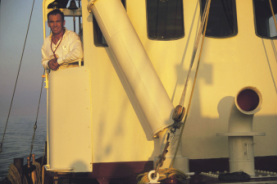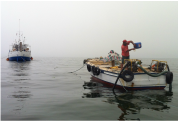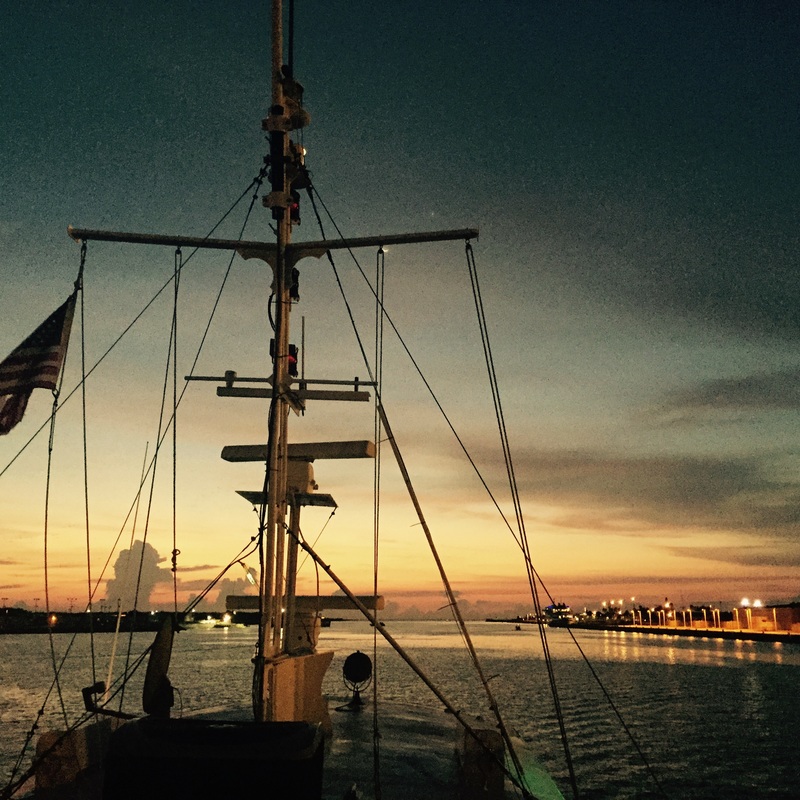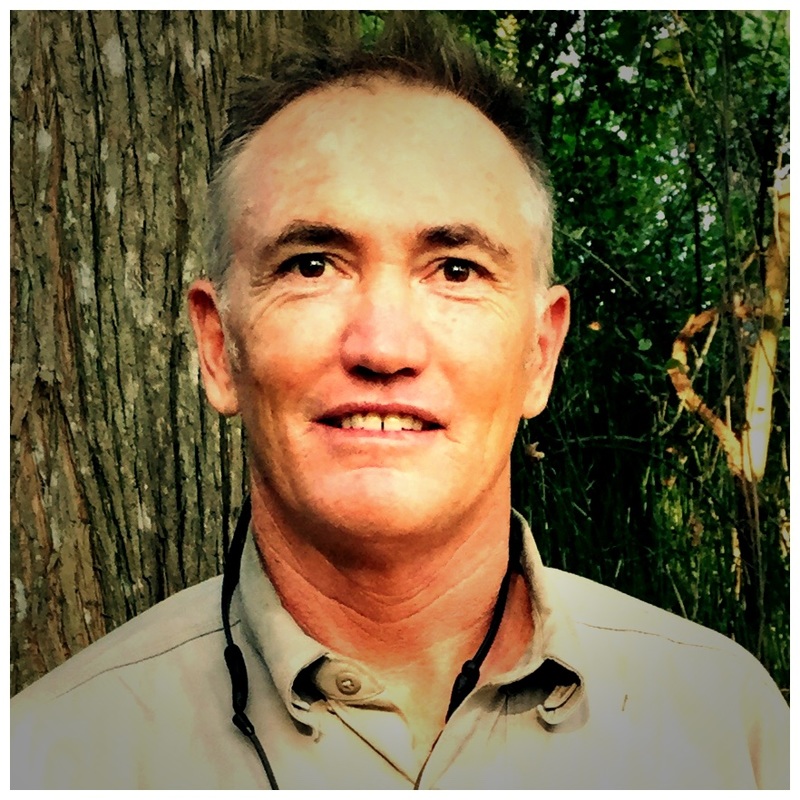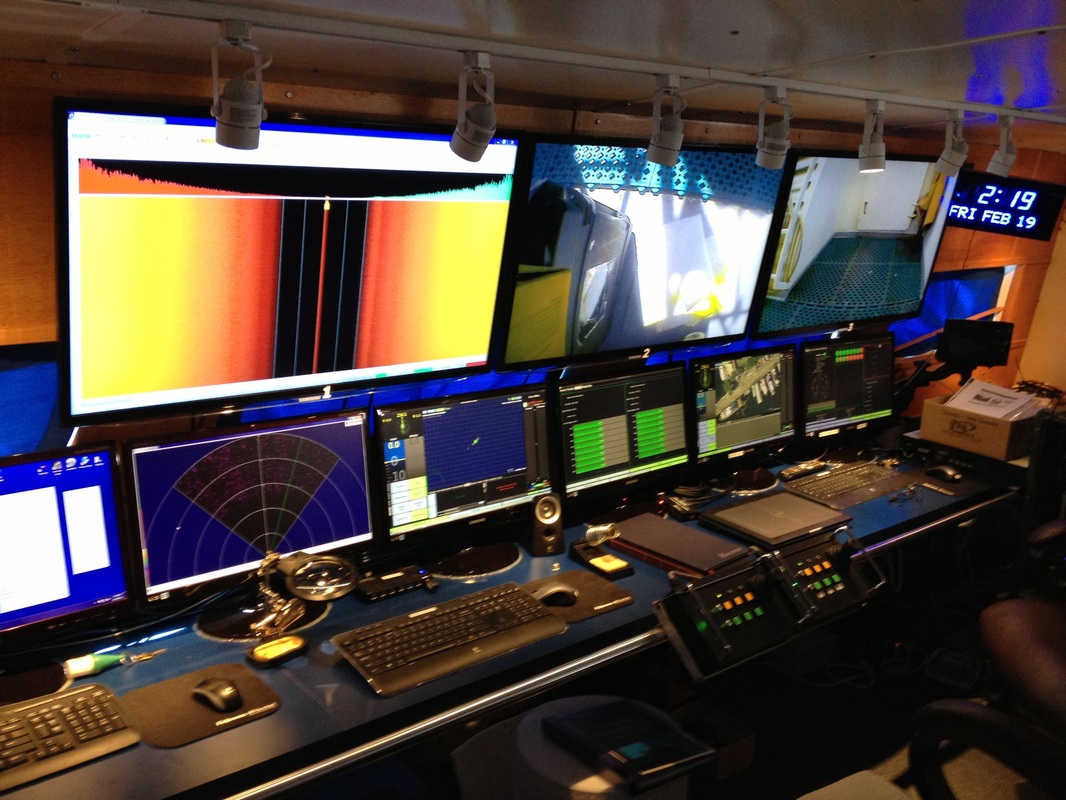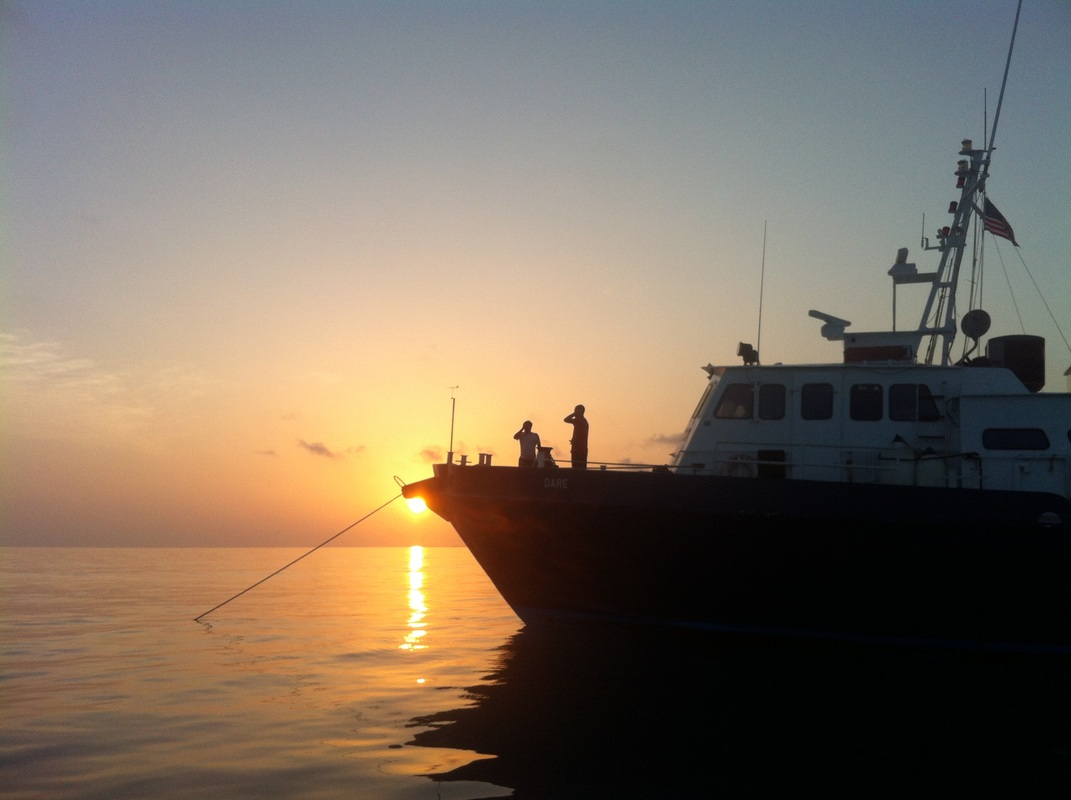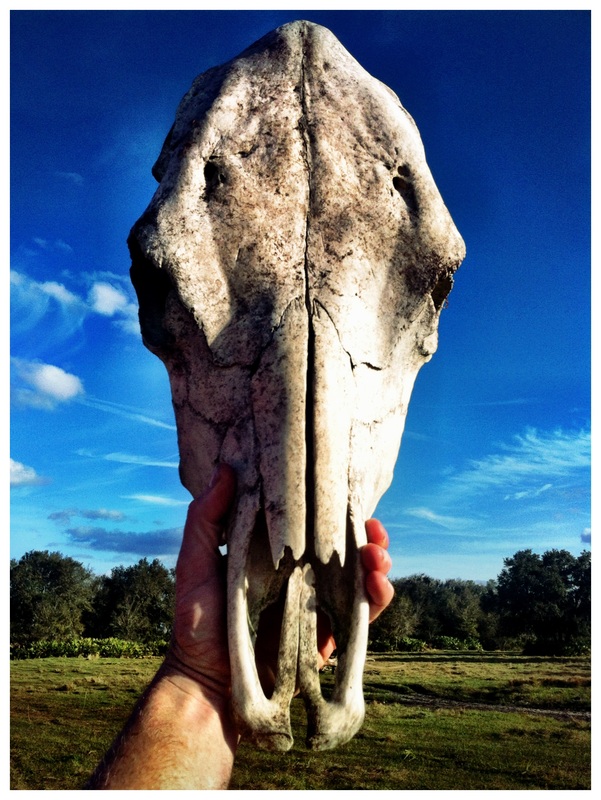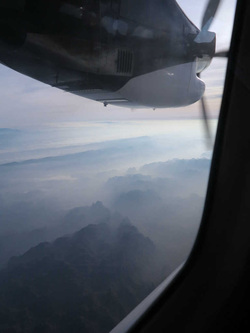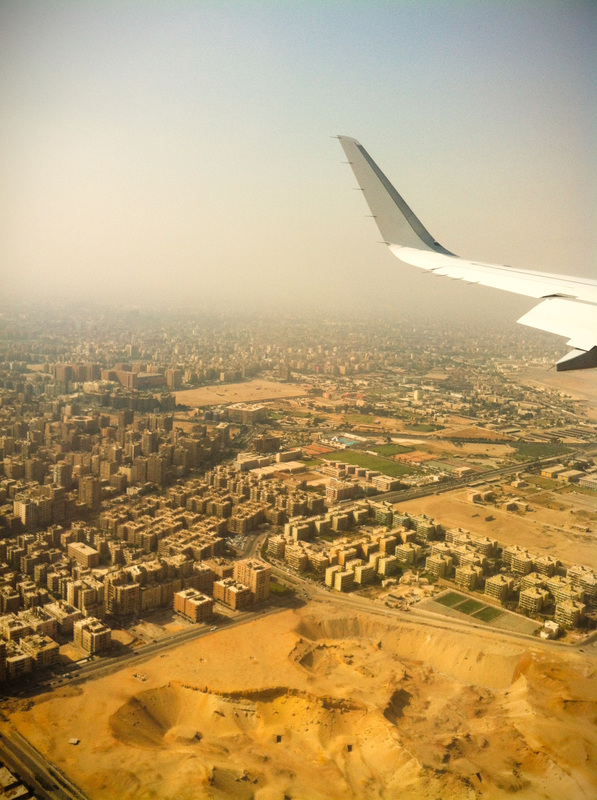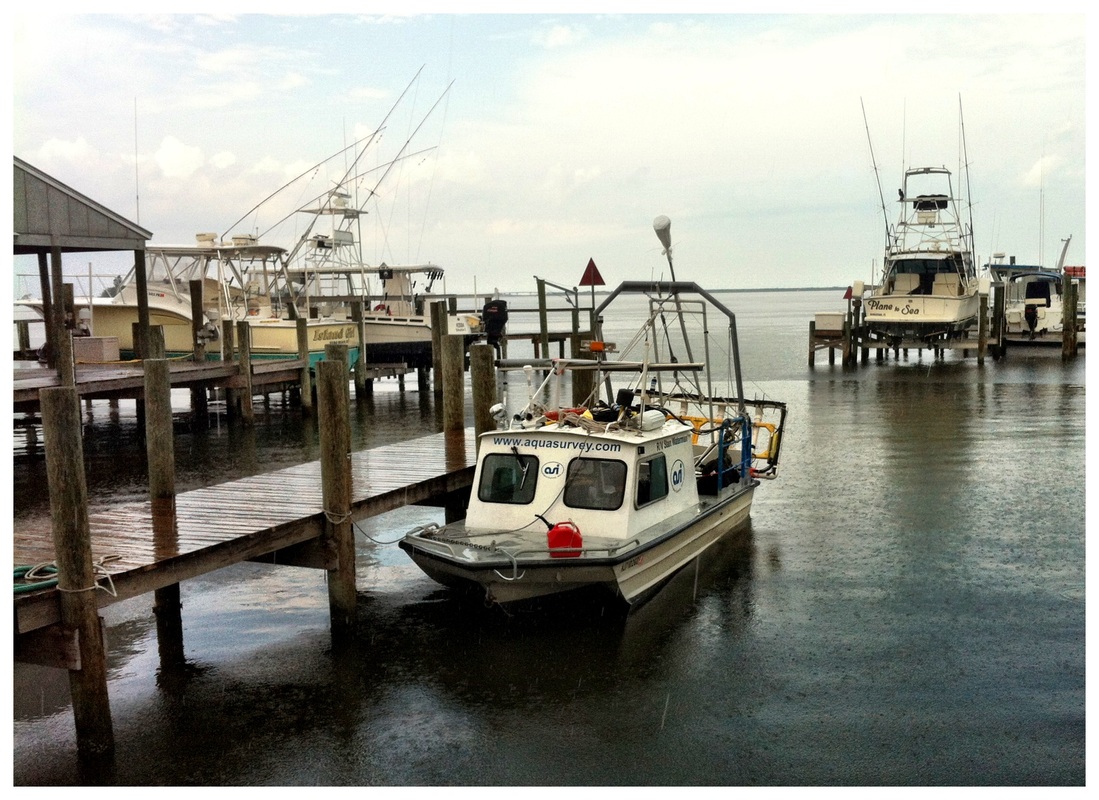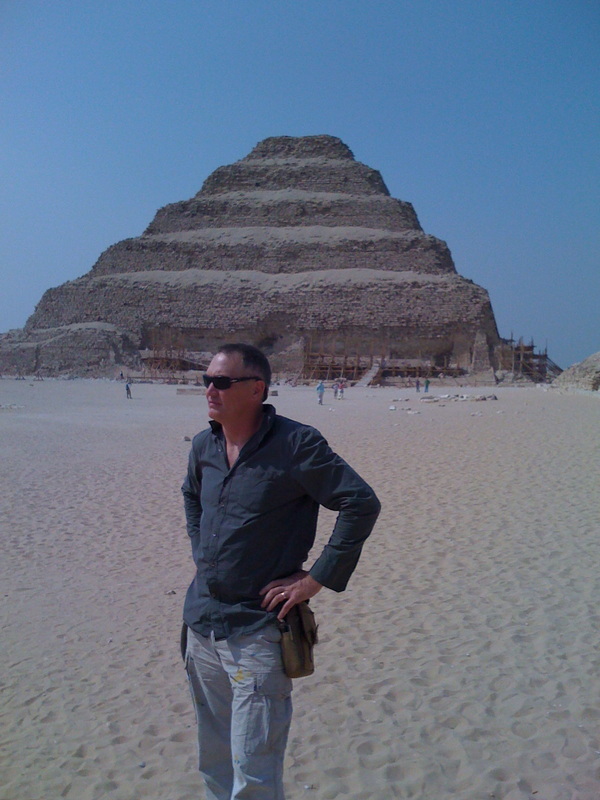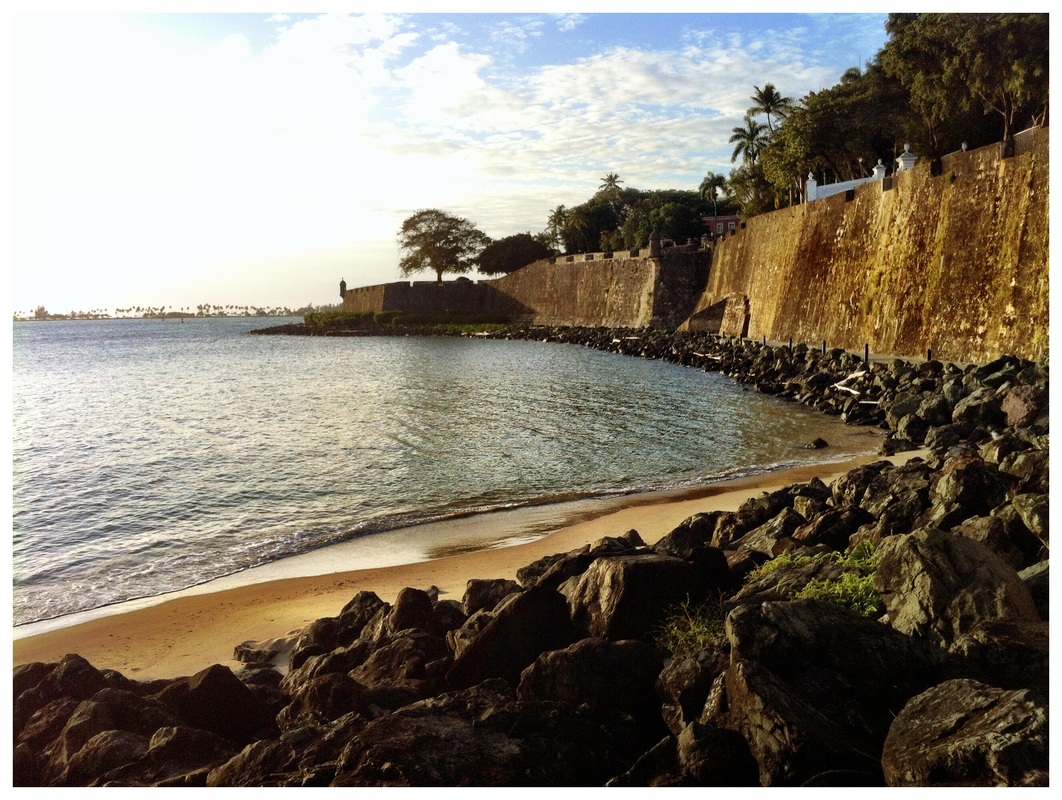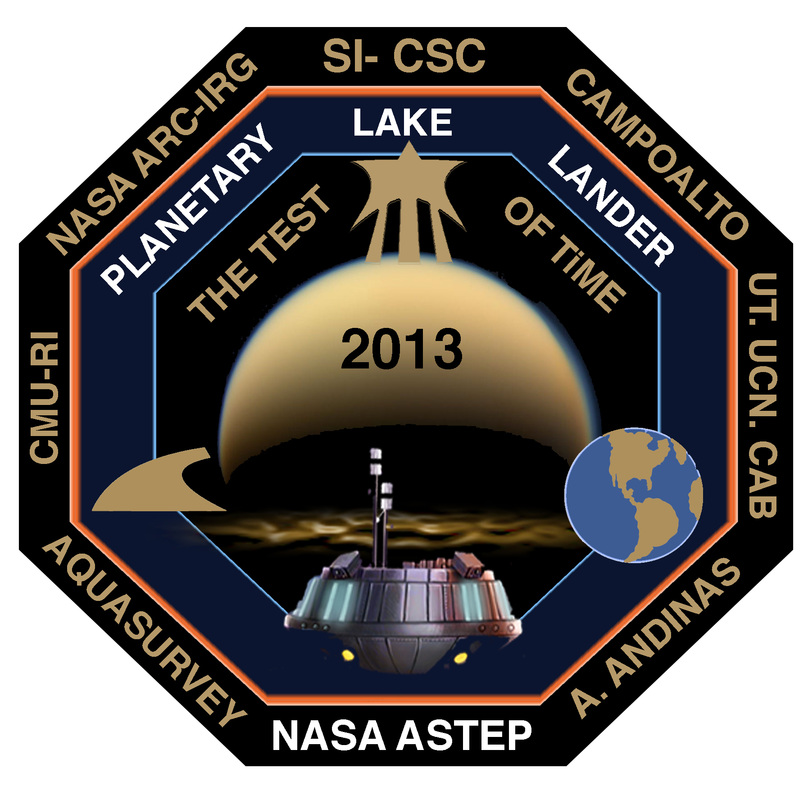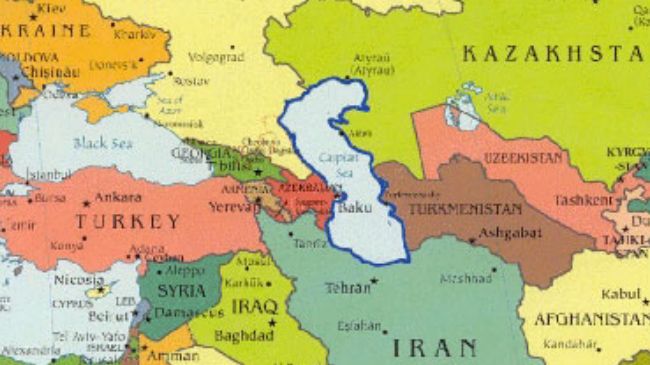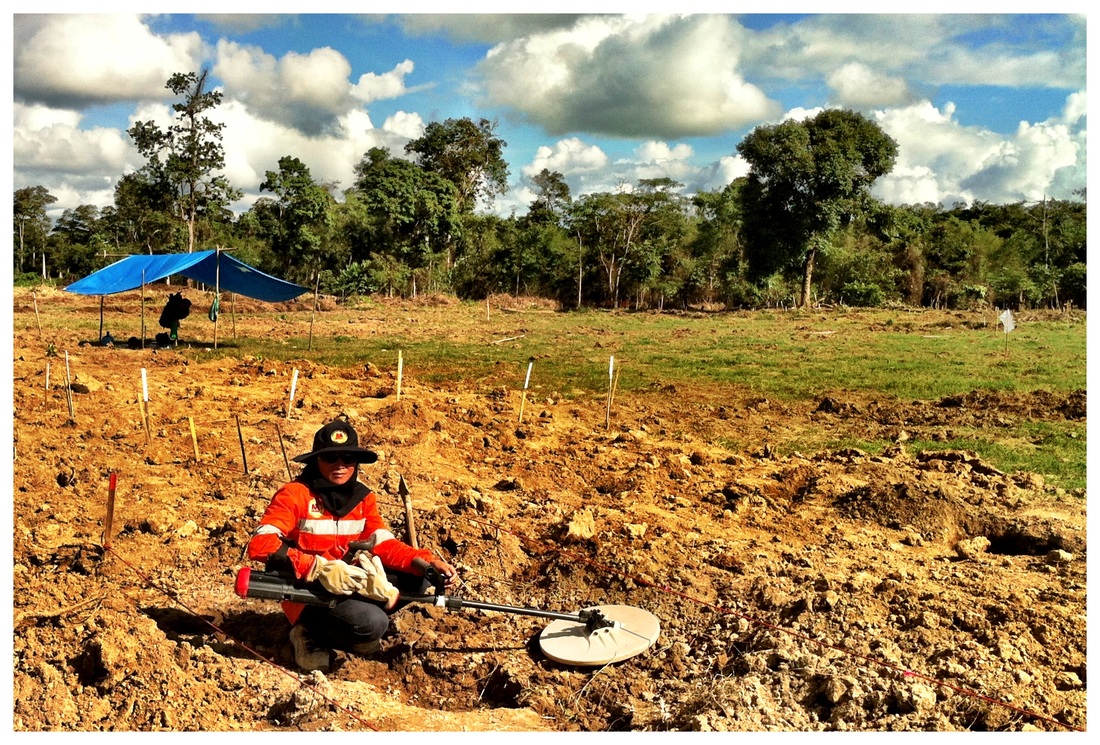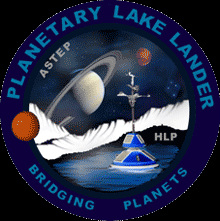Breakfast at Mid Camp
is not hurried.
I have 2 ramen packets and tea. Macario and the rest of
the Bolivian guides arrive, with more of our
scientific equipment and diving
gear. They had started carrying gear up the
mountains in stages 3 days ago. Macario will have climbed Licancabur 398
times as of today. He is 59 years old.
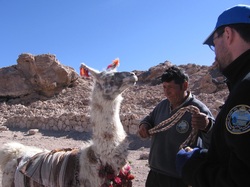
changes in extreme environments. When I
was a kid I read books about
mountaineers and artic explorers, and
always
was interested by their accounts
of being able to, say, smell a
polar bear
from a mile away. In the Refuge, I
could smell the real
coffee in Robs
cup from 30 feet, over the Nescafe of
one sitting next
to me. And one day I picked up a mysterious whiff
of,
bourbon?
I had also read about how a mountaineer’s
teeth would turn brilliant white during the course of an
expedition,
because the bacteria that live in your mouth and discolor teeth
perish at extreme
altitude. I hopefully watch for signs of a ‘Hollywood
Smile”, but maybe that’s
just in the Himalayas.
Summit
Camp
is a wonderful, roomy
shoulder an hours climb short of
the summit rim and the entrance into the
volcano’s crater. We arrive in the
afternoon and there is plenty of room
for everyone’s tent. Several of the
stoves don’t work today, so we work
to
get one going and keep heating up pots
of water for each party. I
will now be
sharing a 3-person tent with Christian
and Mathieu. Henry
turned
back tearfully an hour up from Mid Camp, with
several symptoms
of
oncoming Mountain Sickness. He descended to Mid Camp with
Auralio and
waited there
till Pablo and Martin from the documentary film
production
came up on
their training climb. They helped him descend, feeling
better
with every drop in altitude.
Christian and Matthieu’s tent is
like
a dorm room or Frat house. It’s
a mess within minutes of construction,
with food stashed in every
corner and dirty socks, and they chat like birds,
both speaking English well
though Christian is Chilean and Matthieu
French. We don’t cook
dinner till
after dark, by which time the other
tents are all asleep,
and we make 3
courses out of it. A freeze dried
salmon dish, some
pasta, tea and
desert. All cooked on the little stove
in the
vestibule of the tent, while we
sit cross legged or lay across
the
piles of sleeping bag and expedition
clothes chirping about
geology,
engineering, and travel.
After dinner I climb out to sit
till its too cold to be amazed at being on
top of a volcano in a range of
volcanoes that stretches across four countries
and till the earth drops
away out of site. We sleep shoulder to shoulder too
tightly packed,
but
warm.
The next morning, granola bars are an
option, but anything hot
looks
better, so I go back to the ramen. Rob and
Clay do too. We deliver
a
pot of hot water to Nathalie and Edmond, and they make
breakfast
soup
in their tent. The sun peaks over Argentina’s shoulder and
bores
into the cove summit camp
occupies like it was a satellite dish, and
soon it is so warm and we strip off layers of coats
and jackets and wonder
why we even had them on only an
hour before.
We start our slog
up to the summit and in the morning
calm, and I get my first view of
the
lake that caused all this trouble. It
looks like an emerald cut
flat
on top with thousands of facets facing down
onto the wet rocks.
Soon the
wind picks up and ruins the effect, but doesn’t
remove it from
my memory.
We do science projects. Clay assembles the
remote control
boat and
makes a 3D map of the lake, and installs the UV
radiation
meter.
Nathalie collects surface samples of ostrocods, copepods,
cyanobacteria, diatoms and a fat little
shrimp-like creature with her
plankton nets, She gets very excited
because she has never seen the fat ones
before.
For lunch we have cheese and cold cut sandwiches that were
made
up by Maxima the day before and carried up by the guides. They often
leave the refuge at 3 am to be at summit camp by 8, carrying a load of
up
to 35 pounds. Macario is the leader, followed by his son Auralio,
and
Barnabe, Martin, and Bernardo. We also have some soldiers
from the
Bolivian Army helping us out. I’m not sure if they are getting paid
extra,
or just looking for something to do. They might be the
fittest
infantrymen around,
judging by their ability to scale the
mountain so
fast early in the dark, and
then literally run back down the scree field slopes to be back at their camp for
supper.
Rangers from the nearby Bolivian
National Park also join us at
the lake to collect the samples, they
are
tall and schooled, and look
different than the soldiers, but still wade
into the lake that was frozen across
when we woke up and collect samples
for Nathalie with bare arms
and hands, sweeping the plankton nets back and
forth, My
own hands become useless in
just a few minutes in the water,
and I stuff them hard and stinging in my
armpits and hop around till I can
try using them again.
We leave the lakeside to ascend to the rim and
descend to summit camp around 1600. Along with
the samples, I collected
some lake water in my
bottle. There is a shortage of
drinking water and
I have been thirsty for days and
my lips are cracked, but
no one else is
complaining.
We get back to Summit Camp and Pablo and
Martin have
arrived.
Continued:
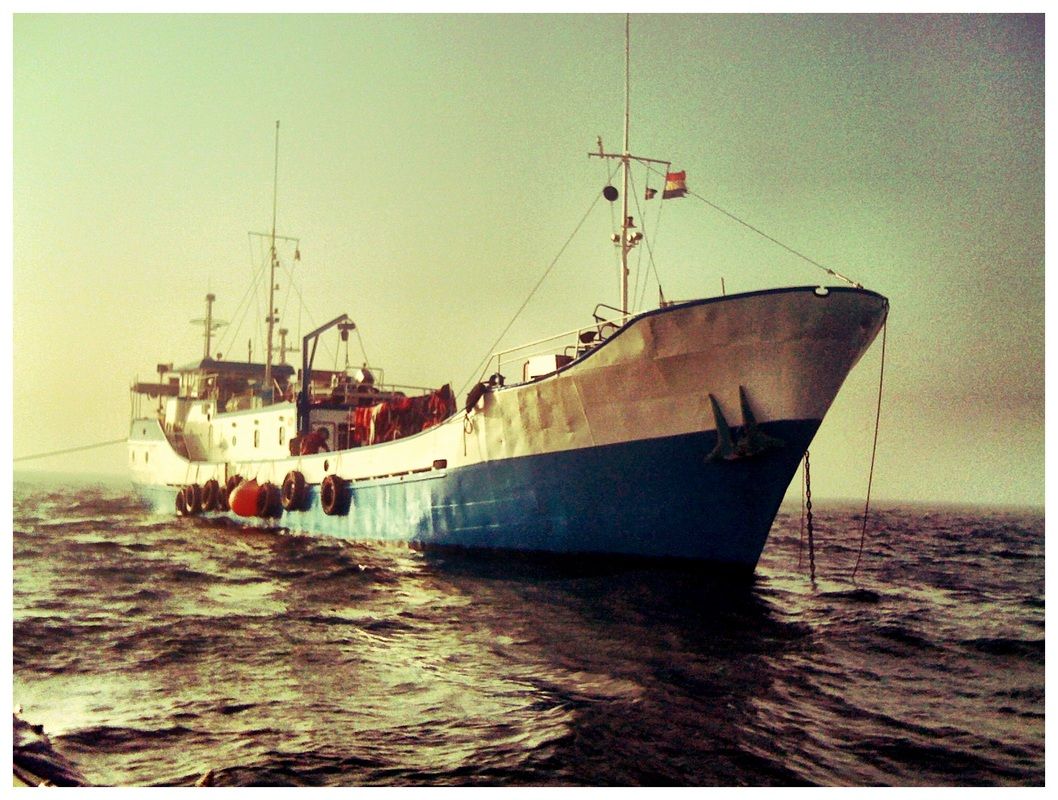
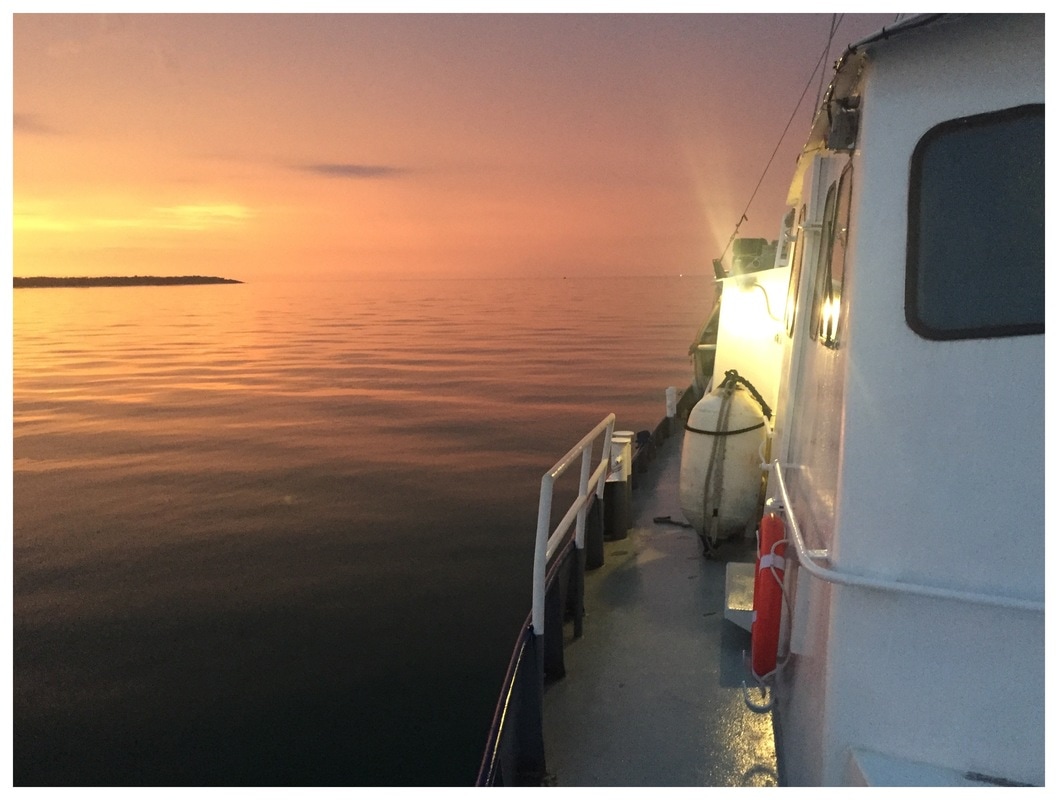
 RSS Feed
RSS Feed
